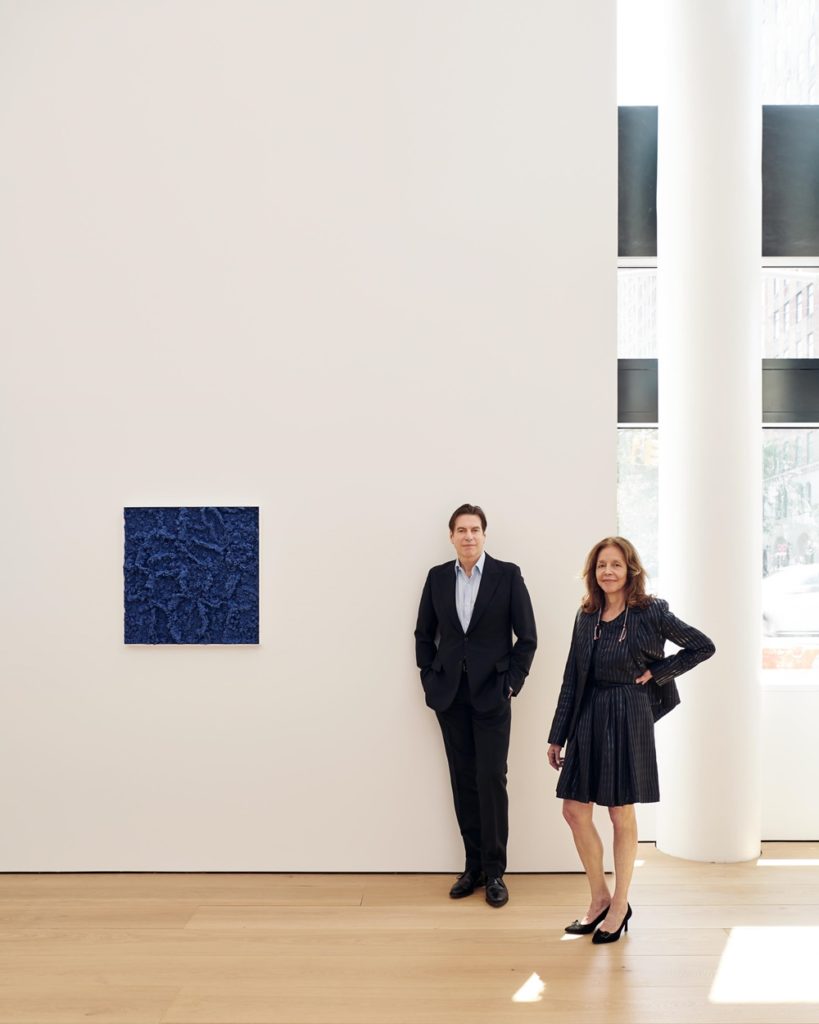Artnet News Pro
Lehmann Maupin Gallery Has Inked an Exclusive Partnership With the Winklevoss Twins’s Gemini to Accept Cryptocurrency for Art
The gallery hopes the move will lure new and younger buyers.

The gallery hopes the move will lure new and younger buyers.

Eileen Kinsella

After years of hype, plenty of debate, and no small amount of doubt, cryptocurrency is making major inroads in the art world. Just a few months after top auction houses began accepting crypto on select works, blue-chip gallery Lehmann Maupin has cemented a partnership with Gemini—the platform founded by famous tech twin duo Tyler and Cameron Winklevoss—that it says marks the first time a commercial gallery has accepted crypto through the platform.
Cryptocurrency transactions will be available immediately at the gallery’s locations in New York, Hong Kong, Seoul, and London, as well as at seasonal spaces in Aspen, Taipei, and Palm Beach. The gallery can accept payment in more than 40 different cryptocurrencies.

Helen Pashgian, Untitled (2018). Image courtesy the artist and Lehmann Maupin, New York, Hong Kong, Seoul, and London
Several of its star artists, including Gilbert & George, Catherine Opie, Helen Pashgian, Alex Prager, Robin Rhode, and Tony Oursler, will also “custody” their anticipated crypto sales with Gemini (meaning the company will oversee the crypto from any sale should the artists hold a wallet or Gemini account).
Asked whether the partnership was in direct response to demand from collectors, gallery co-founder Rachel Lehmann described it as “a proactive move in anticipation of more and more gallery clients requesting to acquire work via cryptocurrencies.” Further, she added, the gallery hopes to “attract new and younger clients who are members of the growing crypto community or spur existing clients to begin transacting in crypto.”
Lehmann Maupin isn’t the first major gallery to accept alternative currencies—Pace, which has also launched a dedicated platform for selling NFTs, made the move earlier this summer, while several Hong Kong galleries offered clients the option to pay in crypto at Art Basel Hong Kong in May.

Tyler and Cameron Winklevoss.
“Integrating crypto payments will help Lehmann Maupin reach a wider demographic and be that bridge for collectors from the digital art world into traditional art,” Gemini CEO Tyler Winklevoss told Artnet News.
Indeed, with little extra investment and minimal downside, the move signals to crypto enthusiasts that the gallery is a friendly place to spend. “Crypto is borderless and global,” noted Dave Abner, global head of business development for Gemini. “Offering the ability to use cryptocurrencies as payment for art can help [the gallery] and its artists truly reach the world’s collectors.”
For Lehmann, the collaboration was inspired in part by the simple desire to learn more about this world. “The art world lacks a general understanding of cryptocurrencies and their potential to transform the market,” she said.
While there has been an overwhelming focus on NFTs, “the conversation is much bigger than that,” she noted. “Trading in cryptocurrencies will allow us as a gallery to reach more audiences for our artists and continue our commitment to innovation. We are one of the first galleries to embrace this opportunity as we believe it’s the future of our industry.”